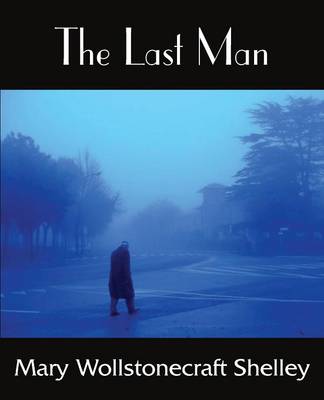
brokentune
Written on Oct 20, 2018
There are spoilers ahead.
I don’t know what I expected from the book, but from rather early on it was very clear that Shelley wrote a novel as means to mainly immortalise her group of friends – specifically her husband and Byron.
Both had died only shortly before she wrote the book and for the most part the book actually reads like a tribute to them. She captured Percy in the figure of Adrian, who would become leader of the people and try and valiantly save them from the plague, but ultimately fails and dies.
Lord Byron, a larger than life character, has been split over several characters.
There are numerous references to he groups travels in Italy, Greece, and to Lake Geneva, which will be familiar to anyone who’s read the story about how Shelley created her main work, Frankenstein.
While I truly did appreciate Shelley’s effort to commemorate her family and friends, it did nothing to help work out a plot to the story. The story itself is simple: the main character feels alone in the world and becomes a bit of a grump. Then he meets a some new friends who transform his life. A plague breaks out. Everyone dies…except for the main character.
However, all of this is stretched over nearly 500 pages and most of those are about the main character remembering the greatness of his friends and how empty his life is without them.
In short, this was a 479-pages-long eulogy.
And yet, I really wanted to finish it. I wanted to know how it ends. This was not because I was interested in the story itself of the specific main character, but because it became clear that this book actually was Shelley trying to work through her grief and through a period of depression – and I really felt sore for her.
There are paragraphs where the main character’s and Shelley’s pain literally drips off the page. There are pages where suicide is considered … and in the end dismissed. I had lost interest in the story pretty early on, but the author’s mental journey was as fascinating as it was depressing as she embodied herself in the main character. Shelley herself is The Last Man.
Also, Shelley was a progressive badass! Much of the story is based on the monarchy being abolished and England becoming a republic. Let’s just remember that this was published in 1826. The height of Empire!
Oh, and if you don’t mind the sloooooooooooow plot development and you’re into depressing books that ooze with lush Gothic atmosphere. This book has it all.
"It was a melancholy thing to return to this spot so dear to us, as the scene of a happiness rarely before enjoyed, here to mark the extinction of our species, and trace the deep inerasable footsteps of disease over the fertile and cherished soil. The aspect of the country had so far changed, that it had been impossible to enter on the task of sowing seed, and other autumnal labours. That season was now gone; and winter had set in with sudden and unusual severity."
Previous reading updates:
Halloween Bingo – Genre: Horror
I only have 3 books left to read (plus one in progress that I need to finish) for Halloween Bingo, so I’m going to take some time and figure out which ones will be next.
I’m going to pick Mary Shelley’s The Last Manfor Genre: Horror because I am all horrored-out at this point, and need something that is more Goth than Gore.
I’m also super intrigued by a post-apocalyptic sci-fi novel written by Shelley in 1826. I mean, she’s not the first author that immediately comes to mind when thinking about post-apocalyptic sci-fi.
Bring it, Mary!
I’ll be listening to The Last Man mostly on my commute next week.
Reading progress update: I’ve read 34 out of 479 pages.
"The ex-queen of England had, even during infancy, endeavoured to implant daring and ambitious designs in the mind of her son. She saw that he was endowed with genius and surpassing talent; these she cultivated for the sake of afterwards using them for the furtherance of her own views. She encouraged his craving for knowledge and his impetuous courage; she even tolerated his tameless love of freedom, under the hope that this would, as is too often the case, lead to a passion for command. She endeavoured to bring him up in a sense of resentment towards, and a desire to revenge himself upon, those who had been instrumental in bringing about his father’s abdication. In this she did not succeed."
Oooh, … how seditious!
Let’s see where Mrs Shelley is going to take us.
